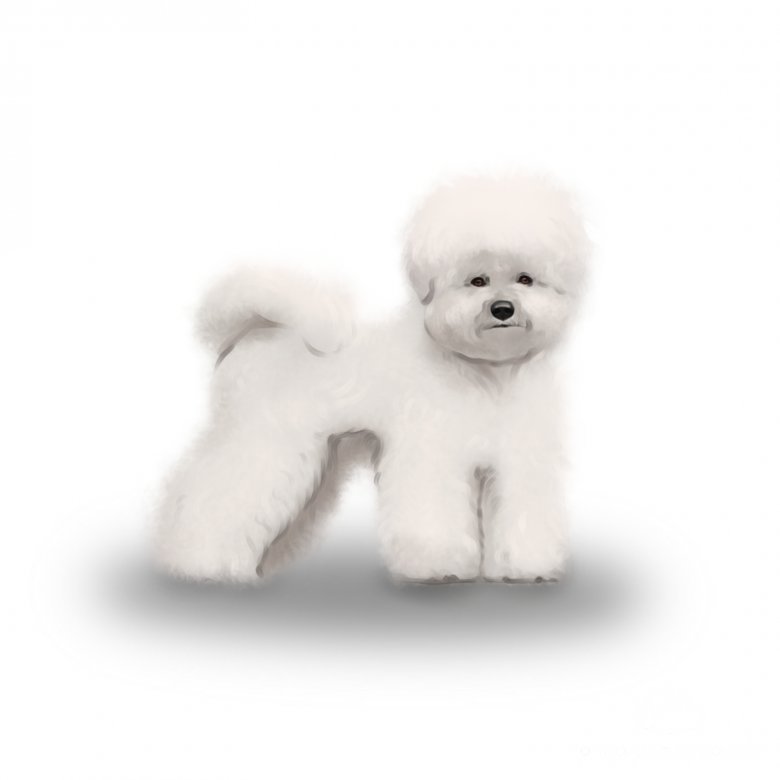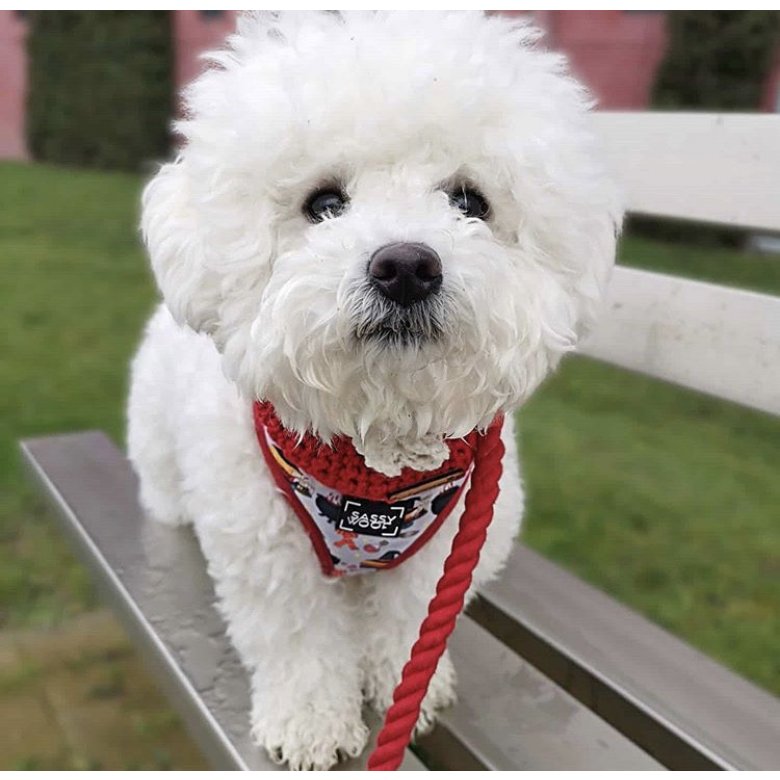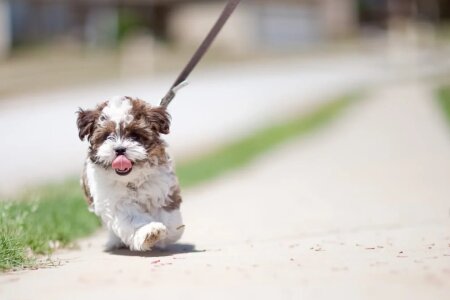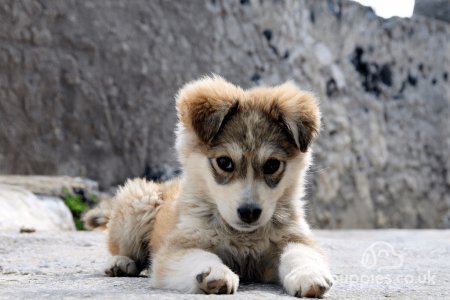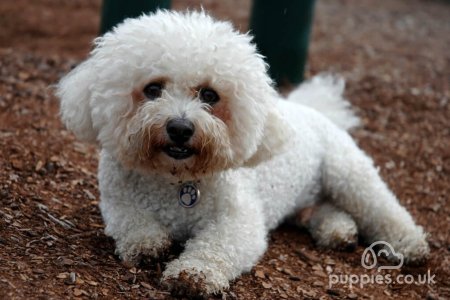Why Bichon Frises are great
Bichon Frise dogs and puppies are perky, affectionate and good-natured. These popular little dogs love to be the centre of attention, they are quick learners and are always eager to please their owners. Bichons make excellent family pets and are a great choice for first-time owners. Some highlights:
Sociable
Easy to train
Playful
Highly adaptable
Things to consider when looking at Bichon Frises for Sale
As with all breeds, there are some characteristics of the Bichon Frise that should be considered when looking for the perfect puppy for your home and lifestyle. One of the common problems with Bichons is that they are more difficult to housetrain than other breeds so this will likely require extra patience, perseverance and training. Some downsides to the Bichon Frise:
Often suffer from separation anxiety
Require frequent grooming
Prone to allergies and skin problems
History of Bichon Frises
The Bichon Frise is thought to originate in Europe, more specifically in the Mediterranean. They descended from the Barbet (Water-Spaniel) and there used to be four types of Bichon; the Bichon Bolognese, Bichon Maltese, Bichon Havanese and the Bichon Tenerife. It is believed that in the 14th century, sailors took dogs of the Bichon Tenerife type back to mainland Europe. These little white dogs quickly gained popularity among the upper classes in France, Spain and Italy and in the 16th century, Bichons could often be found in the company of the rich and even at royal courts. In the 19th century, Bichons were still popular dogs but they had lost their privileged position in society. Many became street dogs and after it was realised how quickly Bichons learned new tricks, they started to appear as street performers and in circuses where, thanks to their eagerness to entertain and happy nature, they were the perfect crowd-pleasers. It wasn’t until the 20th century that the breed was officially given the name ‘Bichon Frise’ and a breeding standard was written for them. The breed was taken to America in the 1950’s by French breeders and was recognised by the American Kennel Club in 1972. In the mid 1960’s, a Bichon Frise featured in a TV series in Australia which gave rise to their popularity in Australia’s Eastern states. Bichon Frise remains popular across the world and is one of the most popular dogs in the UK, not only as a companion but also as a show dog.
Appearance
Bichons are often mistaken for white poodles as they are small dogs with fluffy, curly white hair. They are compact but well-proportioned with a large black nose and expressive dark eyes adding to their cuteness.
How big is the Bichon Frise?
Bichon Frise are small dogs standing at between 23 – 28cm at the withers when fully-grown.
How heavy is a Bichon Frise?
An adult Bichon Frise weighs between 3 – 5kg.
What Colour is the Bichon Frise?
Bichon Frise are always white in colour. They are usually completely white but puppies may have cream or apricot markings until they are around a year and a half.
Temperament
Bichon Frise don’t just look adorable, they have very lovable personalities too. If you’re looking for a small, fun-loving dog that is confident, outgoing and rarely shows aggression the Bichon Frise could be the dog you’re searching for.
Do Bichon Frises make good guard dogs?
Although Bichons are small they make excellent watchdogs as they are very alert and will bark at anything suspicious.
Do Bichon Frises bark a lot?
Bichons can be yappy and have the potential to bark excessively but this can be prevented with early training.
Are Bichon Frises easy to train?
Yes, these intelligent dogs are quick to learn and eager to please however Bichon Frise are known to be slightly more difficult to housetrain. It’s important your Bichon has boundaries from early on as if they get away with too much they will begin to think they are in charge which will make them a lot harder to manage. When training your Bichon Frise it is important to be patient and positively reinforce desired behaviours.
Are Bichon Frises playful?
Yes, Bichons are very playful and they absolutely love to be the centre of attention. They have a sense of humour and will spend a lot of their time playing and ‘performing’ for their owners in an effort to entertain.
Are Bichon Frises good with children?
Bichon Frises are fun-loving, gentle and generally get on well with children. They love to spend time with humans but care should be taken around rowdy or very young children as a Bichon may nip if they are roughly handled or feel frightened.
Are Bichon Frises good with other pets?
Although Bichons are great with other dogs and often with cats if they have been well socialised, they may see smaller animals as prey so it’s best to be cautious if you have smaller pets around.
Can I leave a Bichon Frise Alone?
Bichons do not like to be left alone and will often bark excessively and become destructive if frequently left on their own. Separation anxiety is a common issue with this breed so they are best suited to families where one person is always at home.
Do Bichon Frises like water?
Generally, Bichon Frises are happy to walk or paddle in water but they aren’t natural water dogs.
Health
How long do Bichon Frises live?
The average life span for a Bichon Frise is between 12-15 years
How much exercise does a Bichon Frise need?
Bichons are energetic and active, they need daily walks of at least 30 minutes and love to spend time playing in the garden or house too.
What are Bichon Frises Common health issues?
Bichon Frise commonly suffer from:
Care
How much space do I need for a Bichon Frise?
Bichons are very adaptable and suit most lifestyles, they can live in an apartment happily.
What should I feed my Bichon Frise?
You should feed your Bichon Frise puppy in accordance with the feeding schedule provided by the breeder. Any changes to diet should be made gradually. As a guideline, a 4kg Bichon can be fed 70-80g of high-quality dog food each day.
How much grooming do Bichon Frises need?
Bichon Frise are high maintenance when it comes to grooming, they need to be brushed on a daily basis to prevent tangles from forming. Many owners take their Bichons for professional grooming every couple of months too.
Do Bichon Frises shed?
No, Bichon Frise shed very little hair and do not shed seasonally either. This makes them a popular choice for people with allergies as they tend to spread less dander than other breeds.
Average costs
How much does it cost to keep a Bichon Frise?
As a rough guide in pricing: Cost to buy: roughly £550+ for a well-bred Bichon Frise puppy Other costs (Vet, Food etc): £75 per month
Specific Buying Guide
You can read our general buying guide here (/advice-on-buying-a-puppy/), with the most important thing being going to view your Bichon Frise Puppy, seeing it with its mother, and checking the quality of the breeder. More specifically, here is some Bichon Frise puppy buying advice:
The popularity of Bichon Frise puppies increases the likelihood of bad breeding practices and people looking to make a quick profit without properly caring for the animals and their welfare. Make sure the breeder you go to has the proper paperwork and has provided the animals with the appropriate vaccinations and veterinary checks.
It is also important not to pay a deposit or the full price for a puppy you’ve only seen online, first visit the breeder to ensure they are genuine.
Other reading, Adopting Bichon Frise Puppies and Rescue Organisations
A big thank you to the following sources who helped to shape this article: https://www.akc.org/dog-breeds/bichon-frise/ https://bichon.org/ https://www.thekennelclub.org.uk/services/public/breed/display.aspx?id=6148








